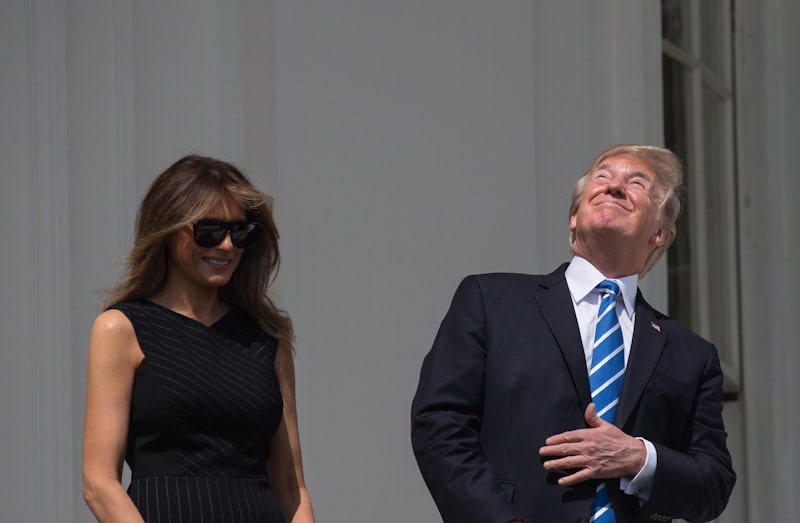
The 2017 solar eclipse has come and gone, but for many Americans, the memories of it will last a lifetime. The Associated Press reported that it was the “most-observed” eclipse in history, with millions of people buying eclipse glasses or making their own pinhole projectors to watch the once (or twice)-in-a-lifetime event. Yet, despite repeated warnings from experts and doctors, some people couldn’t help themselves from looking directly into the sun. Even if you only peeked at the sun for a second, you can still do major damage to your retina that might not show up for a few days. Many people are wondering if it’s possible to reverse eye damage caused by an eclipse, and the truth is, you can’t really.
The main risk of eye damage from staring directly into the sun is a condition called solar retinopathy, where bright light kills cells in the retina, leading to blurry vision or a potential blind spot (though not necessarily total blindness). “The cells of the retina are not designed to handle the light intensity that comes from staring directly at the sun,” Christopher Quinn, president of the American Optometric Association, told Bustle. Because the retina doesn’t have any pain receptors, it’ll take a visit to your doctor to figure out the extent of the damage, and what exactly you can do to fix it.
Unfortunately, in the case of solar retinopathy, there isn’t too much that can be done about it. "The retina doesn’t have the capability to heal itself," Dr. Quinn told Bustle. "There are some parts of the eye that can heal but, the retina, like most nerve tissue, doesn’t regenerate and doesn’t repair itself." There is the possibility that the solar retinopathy won't become permanent, but you need to monitor the retina to see if scar tissue develops. "Once there’s scar tissue that’s formed, it leads to irreversible vision loss," says Dr. Quinn.
The good news (ish) is that vision loss from solar retinopathy is usually very minimal, in the form of only a very small blind spot. There are devices that people with this kind of vision loss can use to "retrain their vision," though it won't eliminate solar retinopathy entirely.
Another possible issue you could run into after ignoring literally the only instruction given about the eclipse is photokeratitis, which Dr. Quinn describes as “sunburn of the eye.” You might have photokeratitis if your eyes are red, you’re sensitive to light, or you feel like there’s something in your eyes all the time, according to Dr. Quinn. Like a sunburn, photokeratitis will heal on its own, usually within a day or two, according to the American Academy of Opthalmology. If you think you might have photokeratitis after looking at the eclipse, take out your contacts and avoid too much light. You can also use eyedrops or put a cold washcloth over your closed eyes to alleviate discomfort. Also, don’t stare directly into the sun ever again.
While you can’t exactly reverse damage done to your eyes by looking directly at the solar eclipse, there are some kinds of damage that will heal on their own. The other kinds, not so much. If you thought the warnings were overhyped and decided to challenge a burning fireball to a staring contest, science unfortunately can’t help you. Here’s hoping you take better precautions for 2024.